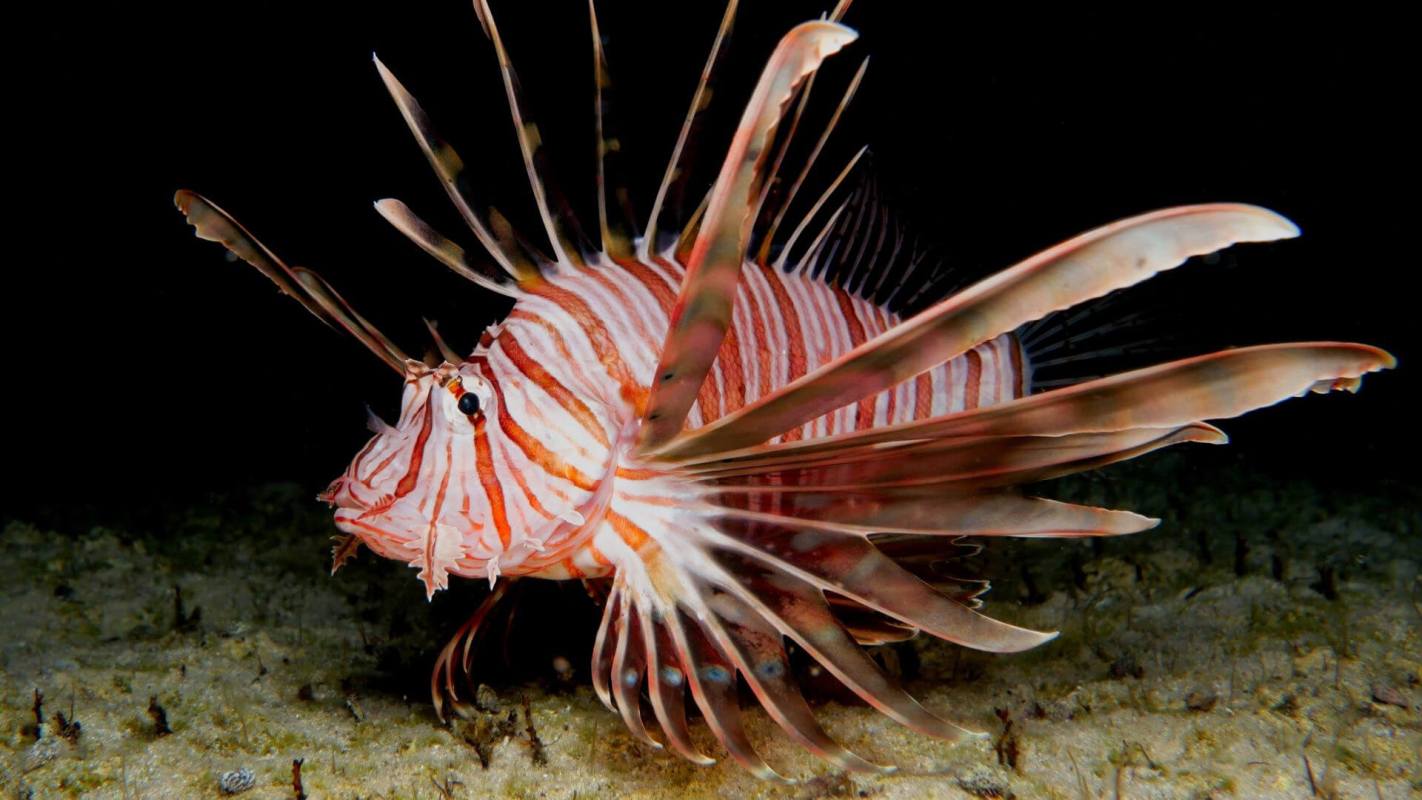With invasive lionfish populations expanding and threatening fisheries in the Gulf of Mexico, Caribbean, and Atlantic waters, foodies, conservationists, government officials, and scientists are offering a new solution: "If we can't beat them, let's eat them!"
Lionfish are venomous fish native to the South Pacific and Indian Oceans. They were first found in U.S. waters off the coast of Florida in the 1980s. Since then, they've been wreaking havoc on delicately balanced coral reef ecosystems and disrupting commercial and recreational fisheries.
Some have connected this problem to the number of people who purchase pet lionfish and later release them to the wild, but the lionfish invasion may also be due to warming ocean temperatures.
Lionfish are native to warm waters. And as average ocean temperatures continue to warm, lionfish are able to migrate further north into very abnormal regions — sometimes as far as Rhode Island during the summer months.
Why are lionfish a problem?
Lionfish have long, venomous spines and insatiable appetites, which allow them to devour small native fish and crustaceans. They do this at rates much higher than native predators and without being threatened by other fish.
Additionally, lionfish reproduce rapidly, with female lionfish laying as many as two million eggs in just one year.
This trifecta of invasive characteristics allows lionfish to wreak havoc on coral-reef ecosystems — lionfish are Godzilla, and Atlantic reefs are Tokyo.
Although lionfish don't directly destroy reefs, they eat crucial fish species, ultimately harming coral reef ecosystems. One example of this indirect harm is lionfish overeating fish populations that eat algae. These grazing fish, such as the parrotfish, keep algae from smothering coral reefs. Without them, algae can suffocate coral and prevent it from growing.
Lionfish also eat "cleaner" fish — those that eat parasites and harmful materials from other fish. Without these cleaners to keep them healthy, several other fish are indirectly harmed by lionfish.
Why should we be eating lionfish?
Controlling current populations and preventing the spread of lionfish have proven to be challenging. From lionfish bounties to roundup competitions in the Florida Keys, those on the East Coast have attempted to tackle these fish in some creative ways.
But the campaign to contain this invasive species is now turning toward menus.
Once stripped of its venom, cleaned, and cooked like other fish, it's safe to eat the invasive lionfish — no reported cases of venom poisoning from eating lionfish exist.
And it's tasty. Lionfish is often compared to mahi-mahi, with its white and flakey meat. Some even say it has a buttery and mild taste.
Brotula's Seafood House and Steamer in Destin, Florida is one of the pioneering restaurants that's decided to serve this invasive species. Executive chef Al Massa has developed several dishes using lionfish — one of which even won second place at the 2022 Great American Seafood Cook-Off competition.
"You can take a bite and take a smile because you're doing something good for the ecosystem," Massa told Grist. "You also can smile because it tastes so good."
However, research on the effectiveness of eating invasive species is limited. And some conservationists believe taking a gastronomic approach is complex and possibly problematic.
Others argue that little is being done to control these fish otherwise. Some conservationists believe capitalizing on invasive eating can help increase the capture and control of animals that harm our native ecosystems.
Follow The Cool Down on Instagram and subscribe to our newsletter.







